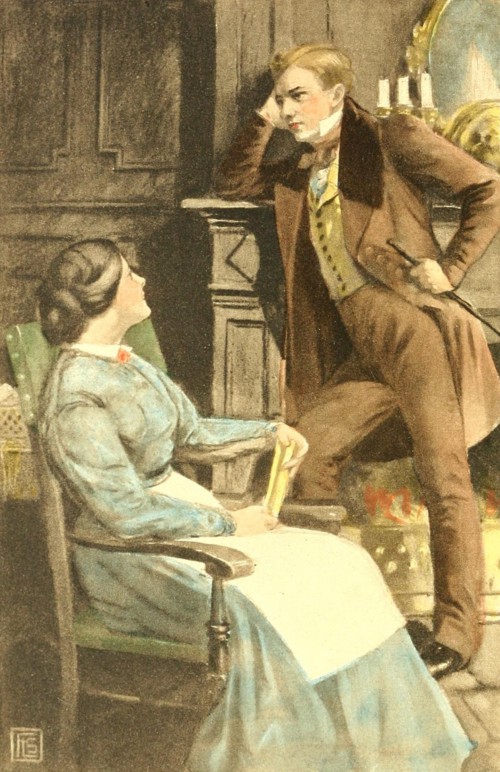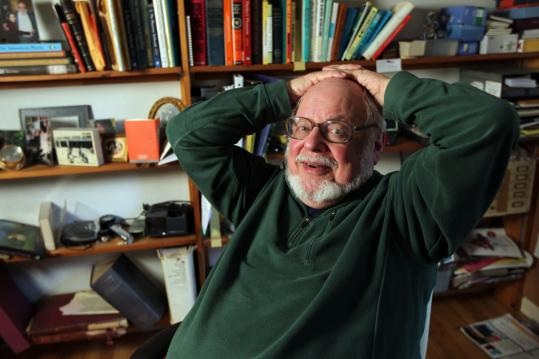I have put off writing this review for some time now. It took me about a year to complete the book, but I just found out that it was originally published in 8 volumes over the span of a year, so I was apparently reading it on schedule. I wanted to take some time to process it in retrospect before I jumped into discussing it here. I am still finding it hard to describe most of my reactions to the text, but at this point I don’t think it will get much easier.
It would be difficult to give a reader of this blog any succinct description of the both intimate and voluminous Middlemarch. I’m certain that any quick descriptive attempt could be easily torn apart under another fan’s scrutiny, but I will be so bold as to attempt to give some passing impressions about the nature of the book. Middlemarch is the story of life for many intertwined characters and families, written around 1870 as historical fiction on provincial English life in the early 1830s. At heart, it is plotted to be a romance novel (or a handful of intermingled romance novels), but one that carries throughout a wide array of story arcs, romantic and non. It constantly emphasizes the psychology and environmental motivations of the characters.
_________
Here are some examples of the high opinions of the book from throughout its history.
– Henry James praised the book for it’s psychological depth and evolution of intimate relationships
– Nietzsche praised it for it’s role of revealing the anxieties and motivations at play underneath the common social constraints of the time.
– Virginia Woolf described the novel in 1919 as “the magnificent book that, with all its imperfections, is one of the few English novels written for grown-up people.”
– Emily Dickenson responded to the question… “What do I think of ‘Middlemarch’?” What do I think of glory – except that in a few instances this “mortal has already put on immortality.” George Eliot was one. The mysteries of human nature surpass the “mysteries of redemption,” for the infinite we only suppose, while we see the finite.”
– F.R. Leavis said “The necessary part of great intellectual powers in such a success as Middlemarch is obvious […] the sheer informedness about society, its mechanisms, the ways in which people of different classes live […] a novelist whose genius manifests itself in a profound analysis of the individual.”
– V.S. Pritchett wrote, “No Victorian novel approaches Middlemarch in its width of reference, its intellectual power, or the imperturbable spaciousness of its narrative […] I doubt if any Victorian novelist has as much to teach the modern novelists as George Eliot […] No writer has ever represented the ambiguities of moral choice so fully.”
_________
Personally, I was continually shocked to recognize that one author could be so capable of interpreting the diverse perspectives of so many characters as to explain the logic and faith behind their actions. The reader is given insight into everyone’s most inner perspectives, and rarely could you find such a large and diverse cast of characters anywhere apart from a real neighborhood.
The plots are many, and among come falls from grace, tragically mistaken marriages, love at first sight, religious and spiritual struggles, kindly benefactors helping along the youths around them, falls into addictions, sudden wealth, sudden poverty, political turmoil, class struggle, and questions of work ethic. You have sympathetic characters who become embroiled in undeserved scandal, characters whom you despise but are gradually made to understand (if not appreciate) through the author’s constant insights, and overall the book is so life-like as to keep you from being certain of what outcomes would be best.
Perhaps that is the highest praise I can give Middlemarch. It is so life like that the characters you love feel as complex as real siblings. The characters you hate you grow accustom to and eventually possibly sympathetic toward, and the events are so realistically mundane and cumulatively riveting that you don’t always know where things are headed or even where you want them to go.
The first hundred pages or so of Middlemarch were a constant battle for me. I had to continually convince myself that the uphill battle would pay off with sweeping vistas in the end. I wasn’t disappointed in the least. As I came upon the last hundred pages or so, I consciously felt myself slowing down, bracing for the inevitability of the end. A couple of suspenseful plots were still hanging in the balance, urging my forward, but I was afraid to finish. I was afraid to have to leave the characters that had become more like real friends. The story spans a few years in Middlemarch and, when I closed the book, I couldn’t help but feel like the story continued on without me somewhere.
_________
Further Reading
Bill Watterson Makes A Case For Art

